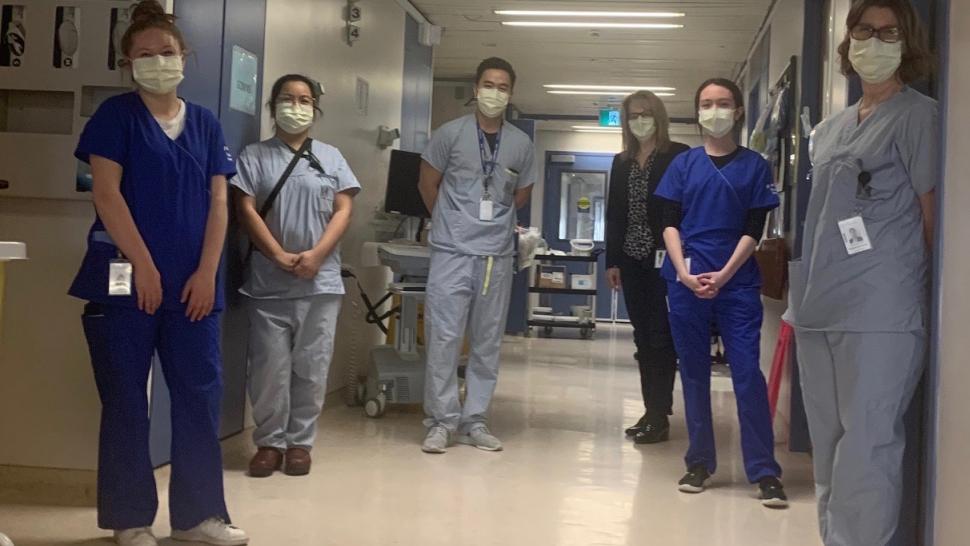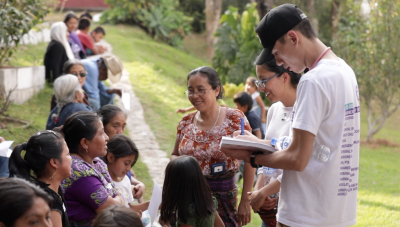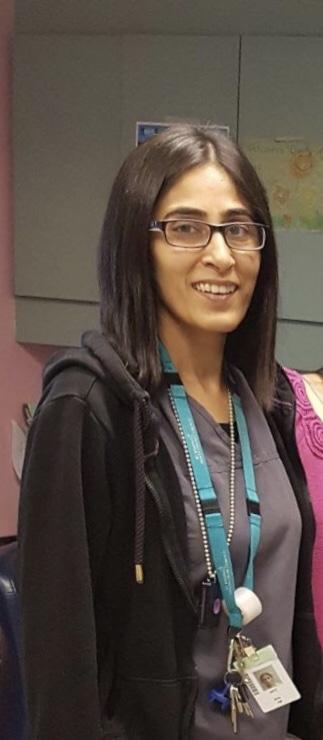
Photos of COVID-19 front-line workers are more than snapshots. Each one helps the community understand the importance of their roles. Some are portraits of teamwork and service.
One such scene caught the eye of Tiziana Rivera, Chief Nursing Executive and Associate Vice President of Osler Health: two students from Humber College's PN Diploma program working alongside medical radiation technologists and nursing staff.
“I was rounding today and they were supporting and acting as safety officers on the unit. This is one of the incredibly important roles within our organization, and one which supports our patients and staff on a daily basis,” she said.
“I cannot express enough how appreciative we are to welcome Humber students as part of our volunteer pandemic plan. They are invaluable.”
Humber-educated nurses can be found everywhere from emergency rooms to specialized units across the community.
The Faculty of Health Sciences and Wellness submitted the names of 155 grads from the Bachelor of Nursing program to the regulatory body on Friday.

"The system now has 155 new nurses ready to serve and I am just so proud," said Jason Powell, Senior Dean of the faculty.
Powell is an Emergency Room nurse and returned to the frontlines to help during the pandemic crisis.
Rising to the challenge
Jimmy Lien, a graduate of Humber's PN Diploma program, is working on the medical unit at the Mississauga Hospital. He says some of the most basic skills he learned at Humber College have become some of the most important during the COVID-19 crisis.
“You kind of laugh it off because it’s simple,” he said.
“But putting on gloves, the gown, putting on the mask and the personal protective equipment (PPE) - you do it incorrectly and you have a higher risk of contracting it [COVID-19].”
Lien is working towards his registered nurse certification using the bridging program. His unit is in the midst of becoming a COVID-19-only unit. The only patients he comes in contact with are those who are positive for the virus.
“It’s stressful.”
Jason Powell has some advice: rely on your training.
“This is what we’ve learned to do. We have the knowledge, the skills, the abilities to work with people who have contagious illnesses.”
Powell, who is working at the Headwaters Health Care Centre, describes the emergency room as “very busy with very sick patients”.
The unit is at maximum capacity. 
Tackling change
It is impossible to predict how COVID-19 will change healthcare, but it is certain to have an impact on nursing instruction at Humber.
“No doubt these times of crises illuminate for us areas we need to shore up and change in the practice sectors,” said Powell.
“If healthcare settings change, we have to alter our education to produce career-ready graduates.”
Nevertheless, the pre-Covid-19 curriculum has successfully prepared new nurses for an ever-changing healthcare landscape.
“Initially I was worried, but I am prepared and ready to do my job,” said Arti Sharma, another nursing student who is almost finished her RN exams. She works as an RPN with vulnerable people in an acute setting.
The job she describes is physical. It is plain in the pictures of dedicated frontline nurses, but she also talks about her emotional role, which can’t be captured by a camera.
“It’s listening, sitting, talking to the patient. Quality time.”
Those quiet moments are some of the most important, she says -even if we can’t see them.